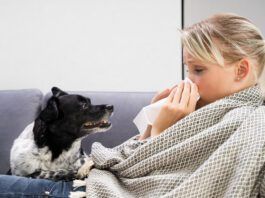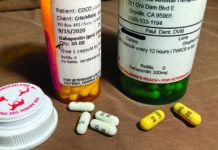Spay Incontinence
Urinary incontinence is the lack of full, voluntary control over the passage of urine. It results from failure of the bladder and/or urethra (the...
Dog Tear Stains: What You Should Know
It’s frustrating to see rusty brown tear stains on your dog’s beautiful face. With so many tear-stain-removing products for sale in the pet supply...
What Are Probiotics For Dogs?
If your dog has ever suffered from diarrhea, probiotics have probably been suggested to you by a friend, coworker or your veterinarian. Here, we look at how probiotics for dogs work, what they can be useful for and which ones to buy.
Dog Hiccups: Can Dogs Get Hiccups?
Ever seen your dog’s body jerk with what appeared to be a hiccup? Yes, dogs can get hiccups. Here’s how to recognize dog hiccups, why your dog gets them and what to do about them.
Leptospirosis in Dogs: What You Should Know
Leptospirosis is a disease caused by bacteria shed in the urine of infected wildlife. Deer, skunks, and raccoons are the biggest reservoirs, although rodents...
Prevent Dog Ear Infections by Cleaning Your Dog’s Ears
As a small-animal veterinarian, I see dogs for “check ears” appointments daily. Ear problems are common in dogs – the basic anatomy of the...
Gabapentin For Dogs: What You Should Know
Gabapentin is a medication that veterinarians are prescribing for the management of pain in dogs. Why has it become so popular?
What Are the Treatment Options For Dogs With Mast Cell Tumors?
Mast cell tumors (MCTs) are the most common form of malignant skin cancer in dogs, accounting for approximately 7% to 21% of all skin...
The Difficult Decision to Amputate Your Dog’s Leg
Early last year, one of my friends fostered a young dog through a long recovery from an extensive surgery. The dog had been hit...
Three Legged Dog Care
I’m not sure which is more difficult: making the decision whether or not to have your dog’s diseased or broken limb amputated, or picking...
Matters of the Heartworm in Dogs
Heartworms are just what they sound like: worms, up to 14 inches long as adults, that develop and live within the blood vessels of...
Canine Knee Injury? Brace Yourself
Ten years have passed since WDJ explored “conservative management” – the nonsurgical treatment – of knee ligament injuries (see “Saying ‘No’ to Surgery,” February...



















